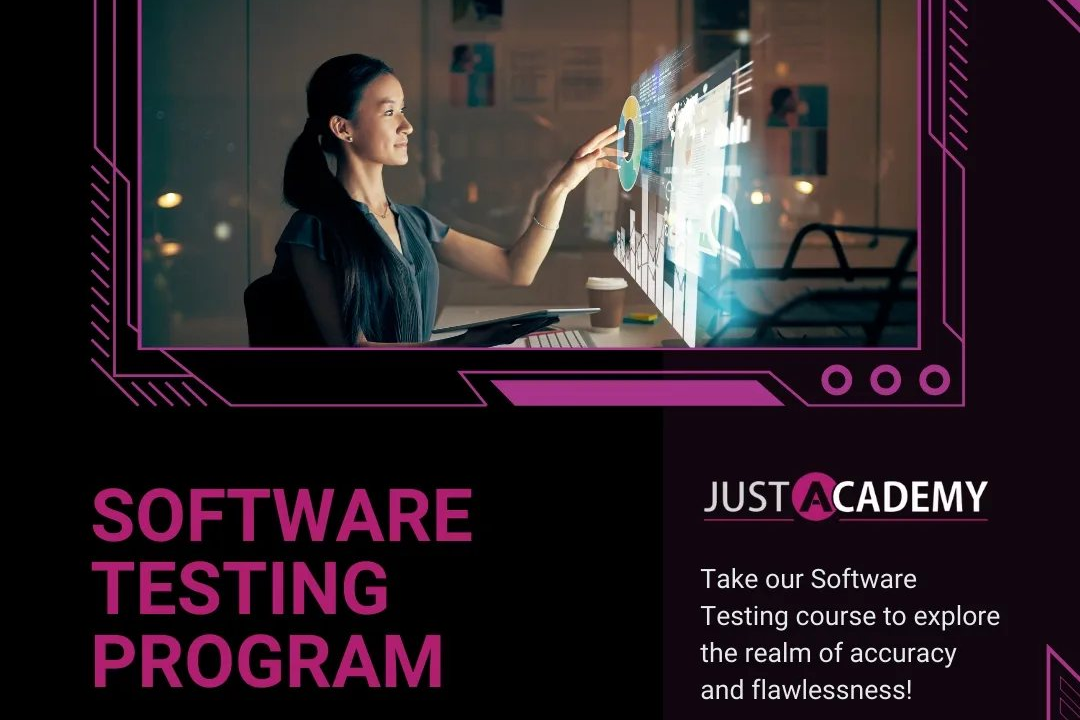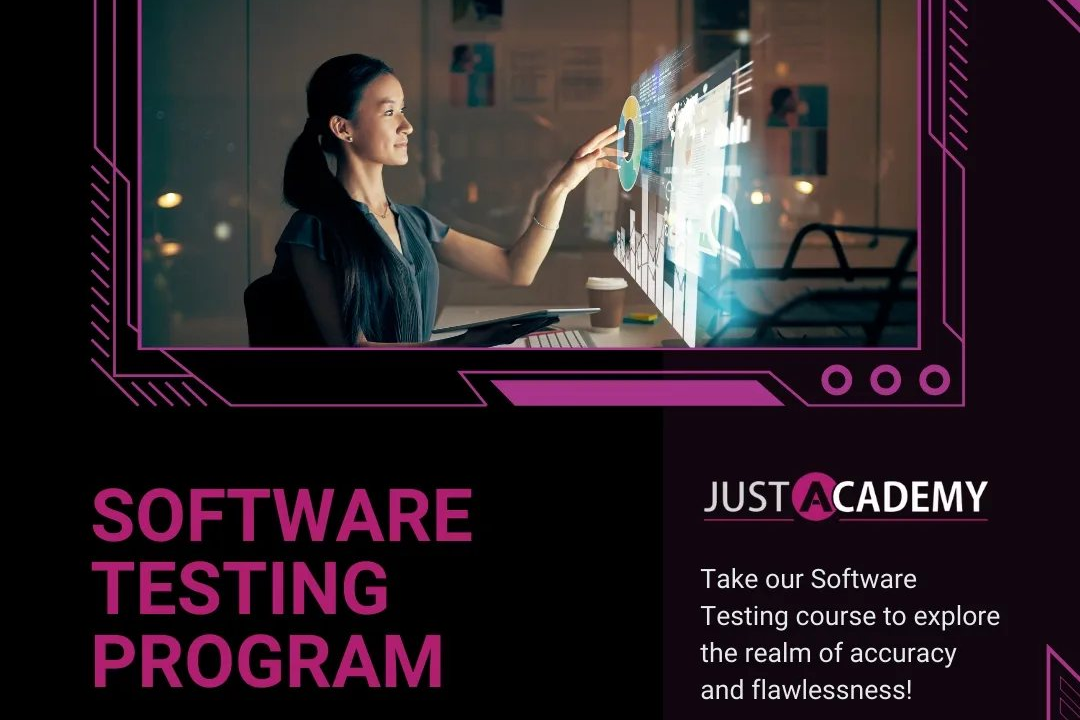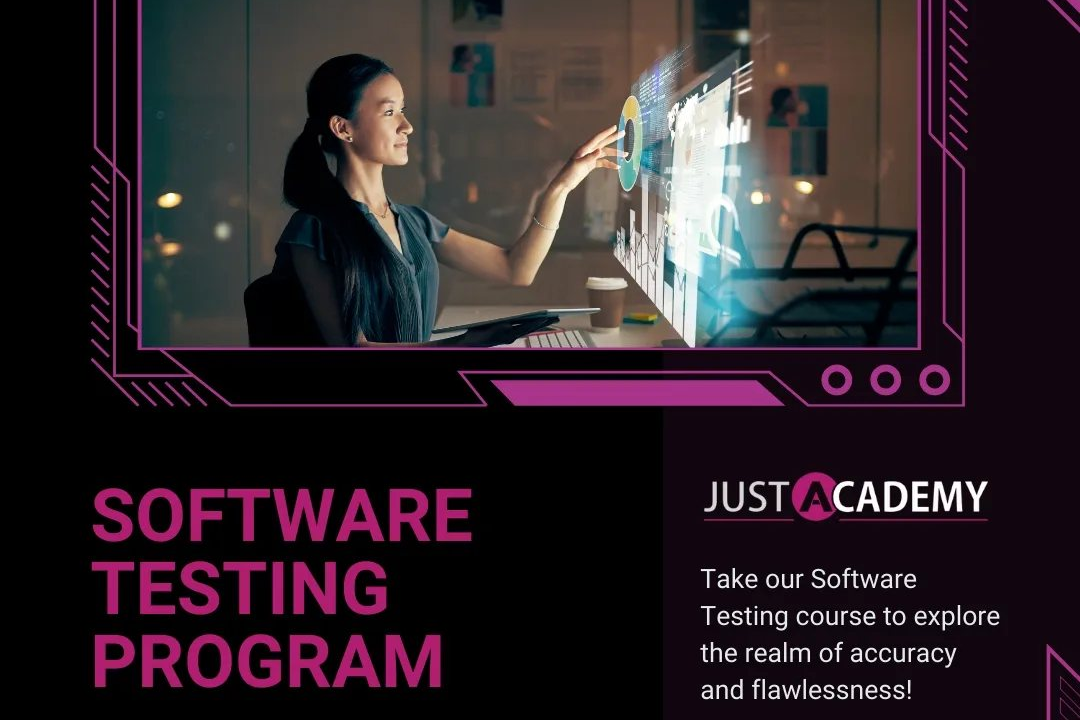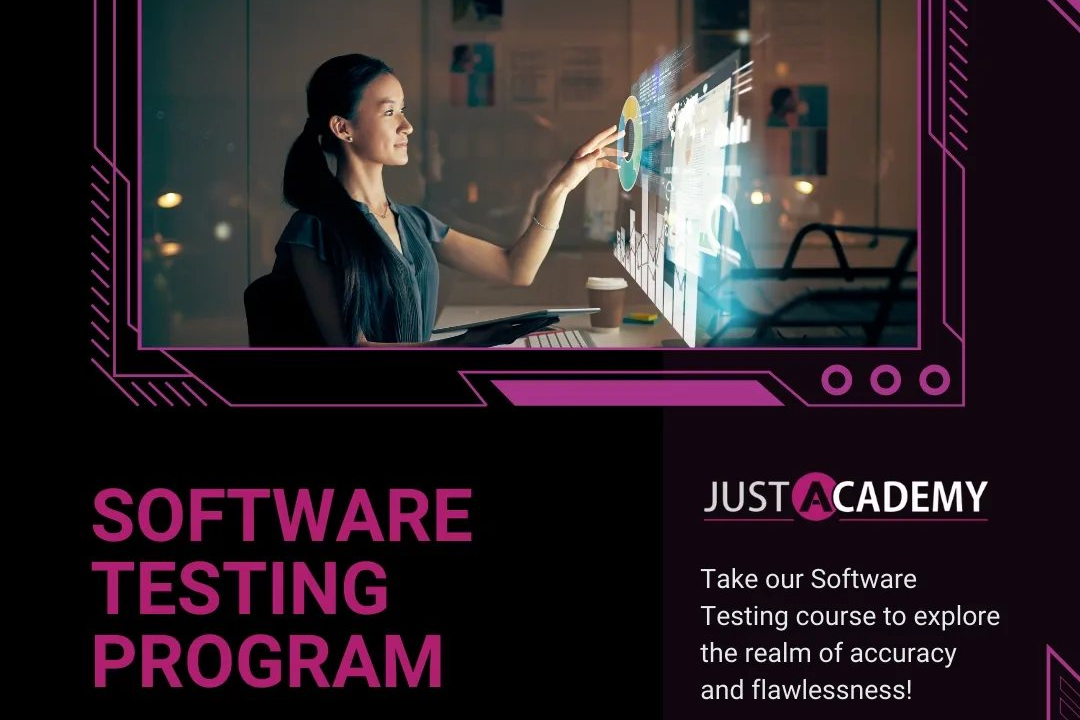Array Pattern Logical Interview Questions PHP
Array pattern logical interview questions in PHP focus on evaluating a candidate's ability to manipu
Array Pattern Logical Interview Questions PHP
Array pattern logical interview questions in PHP are essential for assessing a candidate's problem-solving abilities and understanding of data structures. These questions challenge applicants to apply logic and algorithmic thinking to real-world scenarios involving arrays, such as searching for patterns, optimizing algorithms, and manipulating data sets. By evaluating how candidates approach these challenges, employers can gain insights into their coding skills, critical thinking, and ability to handle complex data operations. Additionally, proficiency in handling arrays is crucial for effective programming in PHP, making these questions a valuable tool in the interview process.
To Download Our Brochure: https://www.justacademy.co/download-brochure-for-free
Message us for more information: +91 9987184296
Array pattern logical interview questions in PHP are essential for assessing a candidate's problem solving abilities and understanding of data structures. These questions challenge applicants to apply logic and algorithmic thinking to real world scenarios involving arrays, such as searching for patterns, optimizing algorithms, and manipulating data sets. By evaluating how candidates approach these challenges, employers can gain insights into their coding skills, critical thinking, and ability to handle complex data operations. Additionally, proficiency in handling arrays is crucial for effective programming in PHP, making these questions a valuable tool in the interview process.
Course Overview
The “Array Pattern Logical Interview Questions in PHP” course is designed to equip learners with the essential skills and knowledge required to excel in technical interviews, particularly those focusing on array manipulation and logical reasoning. Participants will explore a variety of array-based problems and challenges commonly encountered in coding interviews, enabling them to enhance their algorithmic thinking and problem-solving abilities. Through real-time projects and hands-on exercises, students will learn effective techniques to identify patterns, optimize solutions, and develop efficient algorithms in PHP. By the end of the course, learners will be well-prepared to tackle array-related questions confidently, showcasing their technical prowess to potential employers.
Course Description
The “Array Pattern Logical Interview Questions in PHP” course is tailored for aspiring developers seeking to master array manipulation techniques and logical problem-solving skills essential for technical interviews. Participants will delve into an array of practical challenges and coding exercises that target common interview questions, honing their ability to analyze, implement, and optimize solutions using PHP. Through engaging real-time projects, learners will gain hands-on experience in identifying patterns, improving algorithm efficiency, and applying best practices. This comprehensive course not only prepares students to excel in interviews but also fosters a deeper understanding of data structures and algorithms, ensuring they stand out in the competitive job market.
Key Features
1 - Comprehensive Tool Coverage: Provides hands-on training with a range of industry-standard testing tools, including Selenium, JIRA, LoadRunner, and TestRail.
2) Practical Exercises: Features real-world exercises and case studies to apply tools in various testing scenarios.
3) Interactive Learning: Includes interactive sessions with industry experts for personalized feedback and guidance.
4) Detailed Tutorials: Offers extensive tutorials and documentation on tool functionalities and best practices.
5) Advanced Techniques: Covers both fundamental and advanced techniques for using testing tools effectively.
6) Data Visualization: Integrates tools for visualizing test metrics and results, enhancing data interpretation and decision-making.
7) Tool Integration: Teaches how to integrate testing tools into the software development lifecycle for streamlined workflows.
8) Project-Based Learning: Focuses on project-based learning to build practical skills and create a portfolio of completed tasks.
9) Career Support: Provides resources and support for applying learned skills to real-world job scenarios, including resume building and interview preparation.
10) Up-to-Date Content: Ensures that course materials reflect the latest industry standards and tool updates.
Benefits of taking our course
Functional Tools
1 - Integrated Development Environment (IDE): Students will utilize various IDEs such as PhpStorm, Visual Studio Code, and Eclipse for PHP development. These tools provide features like code highlighting, error detection, and debugging capabilities, making it easier to write and test PHP code. An IDE enhances productivity by offering shortcuts and integrated tools that facilitate code management and project organization.
2) Version Control System (Git): Mastery of Git is crucial for collaborative projects. Students will learn to use Git for tracking changes in their code, enabling them to collaborate effectively with others. This tool allows users to revert to previous code versions, manage branching, and carry out collaborative work on shared repositories. Understanding Git enhances teamwork and project management skills.
3) PHPUnit: This powerful testing framework will be introduced to ensure code reliability through unit testing. Students will learn how to create and run tests for their PHP functions and arrays. By implementing PHPUnit in their workflow, learners can detect defects early in the development process and maintain high quality code, which is essential for real world applications.
4) Xdebug: An essential debugging tool that allows students to track and fix problems in their PHP code efficiently. Xdebug provides features like stack trace analysis and function call tracking. Learners will gain hands on experience with Xdebug to debug complex array manipulations and logical problems, significantly enhancing their debugging skills and confidence in identifying issues.
5) CodeQuality Tools (PHP CodeSniffer, PHP Mess Detector): These tools help maintain high standards in code quality. In the course, students will use PHP CodeSniffer to enforce coding standards and ensure consistency in their PHP code. PHP Mess Detector will assist in identifying potential problems and areas for improvement in the code structure. Familiarity with these tools prepares learners for industry standards in code maintainability and readability.
6) Online Coding Platforms (LeetCode, HackerRank): Integration of platforms like LeetCode and HackerRank into the training program provides students access to a wealth of problems focused on array patterns and logical challenges. Practicing with these platforms allows learners to apply their skills in various scenarios, improving their problem solving abilities. Additionally, they can benchmark their performance against peers and gain insights into technical interviews.
7) Database Management Systems (MySQL, SQLite): To complement the PHP programming aspect, students will learn to interact with databases. Understanding how to perform CRUD operations on arrays and data stored in databases is vital. MySQL and SQLite provide practical scenarios for learners to implement their array manipulation skills, reinforcing their understanding of how PHP interacts with databases.
8) Frameworks (Laravel, CodeIgniter): Students will delve into popular PHP frameworks such as Laravel and CodeIgniter. These frameworks facilitate efficient application development by providing built in libraries and structure. Learning to use these tools enables students to build robust, scalable applications while leveraging MVC architecture. Real time projects will incorporate these frameworks, allowing students to apply their PHP knowledge effectively.
9) APIs and Web Services: Understanding how to consume and create RESTful APIs is crucial for modern web development. The course will cover how to work with APIs, allowing students to integrate third party services into their applications and enable data exchange between systems. Students will create projects involving API consumption and creation, enhancing their ability to work within a service oriented architecture.
10) Security Best Practices: The course will also stress the importance of security in PHP applications. Topics will include validating user input, preventing SQL injection, and securing sensitive data. By incorporating security best practices, students will be equipped to build secure applications, preventing vulnerabilities that could compromise user data and application integrity.
11 - Object Oriented Programming (OOP): Students will gain a solid understanding of OOP principles in PHP, such as classes, objects, inheritance, polymorphism, and encapsulation. OOP allows for better organization and modularization of code. Real world projects will require students to apply these principles, fostering a deeper comprehension of how OOP enhances code reusability and scalability.
12) Frontend Integration (HTML, CSS, JavaScript): The course will provide a foundational understanding of frontend technologies. Students will learn how to integrate their PHP applications with HTML, CSS, and JavaScript to create dynamic web interfaces. This knowledge will help them develop full stack skills, allowing for smooth interaction between the backend and frontend of applications.
13) Deployment Strategies: Understanding how to deploy PHP applications is essential. Students will learn about different hosting environments, such as shared hosting and cloud services. The course will cover deployment techniques, including using tools like Composer for dependency management and FTP or SSH for uploading files. By the end of the course, students will be able to deploy their applications effectively.
14) Performance Optimization: Students will learn techniques for optimizing PHP applications, including caching strategies with tools like OPcache and using database indexing. Understanding performance bottlenecks and how to resolve them will enable students to build applications that run efficiently, ensuring a better user experience.
15) Agile Development Methodologies: Familiarizing students with Agile methodologies will enhance their project management skills. The course will discuss how to manage project timelines, sprints, and iterative development. By implementing Agile practices in real time projects, students will learn how to adapt to changing requirements and improve collaboration within teams.
16) Collaboration Tools (Trello, Slack): Utilizing collaboration tools helps students manage projects and communicate effectively. The course will incorporate tools like Trello for project management and Slack for team communication. Understanding these tools prepares students for real world development environments where teamwork is essential for project success.
17) Job Market Preparation: To help students transition into the workforce, the course will include resume building sessions, interview preparation, and tips for effective job searching. Students will be guided on how to showcase their projects and skills, preparing them for technical interviews and job opportunities in the PHP ecosystem.
18) Networking and Community Engagement: Students will be encouraged to participate in online programming communities and forums such as Stack Overflow, GitHub, and local meetups. Engaging with the development community enhances networking opportunities and keeps learners updated on industry trends and technologies. It fosters a culture of continuous learning and support among peers.
By incorporating these additional points, JustAcademy can provide a comprehensive PHP training program that equips students with the essential skills, tools, and knowledge to thrive in the tech industry.
Browse our course links : https://www.justacademy.co/all-courses
To Join our FREE DEMO Session:
This information is sourced from JustAcademy
Contact Info:
Roshan Chaturvedi
Message us on Whatsapp: +91 9987184296
Email id: info@justacademy.co
best solution for react native webview bridge METEOR
What Is Role Of Desired Capabilities In Appium Interview Question












